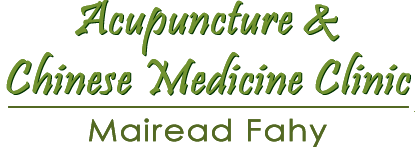Acupuncture treatment for morning sickness is one of the most effective treatments available in my clinic, and quite often the lady is led to its effectiveness indirectly – by having had Acupuncture to assist her conception and Fertility!
Its often a surprise to hear that Acupuncture can help her deal with and eliminate the horrors of Morning Sickness. Quite often the lady WANTS to experience the Morning Sickness as PROOF that she is actually pregnant, especially if she has been trying for quite some time to enhance her Fertility and become pregnant. But for most women, it is a misery, and thus a pleasant surprise when they learn that Acupuncture can cure their Morning Sickness. Obviously for those of you who have experienced it, a pleasant surprise!
Morning Sickness occurs in about half of all pregnancies, and most often between the 6th and 16th weeks, with weeks 8 to 12 being the worst, although it is possible in the unlucky few for Morning Sickness to carry on for most of the pregnancy!
The degree to which symptoms present and their severity varies from person to person. For some it can be slight queasiness, or nausea which occurs at different times throughout the day (Morning Sickness??)! For others, symptoms can be very severe with violent vomiting, and an inability to digest any food however small, and in most cases not even water. Obviously this is quite critical, as it can lead to severe dehydration, and in some cases may require hospitalisation. This is a condition known as Hyperemesis Gravidarum, and is obviously very distressing for the mum to be. But the good news is, that despite the severity of the vomiting, the growing baby is not harmed in any way. Nature has put a Bypass in place, and it still stays snug and nourished in the mums womb!
But dont just take my word for it that Acupuncture can help Morning Sickness! Obviously Im biased!! But thankfully several scientific studies have shown that Acupuncture is very effective in treating Morning Sickness, as indeed I have found this to be the case in my own practice.
“Here comes the science”…as a well known add used to say!
A study undertaken in an Adelaide Maternity Hospital, Australia in 2002 was undertaken on 593 women who were less than 14 weeks pregnant, and experiencing nausea or vomiting. They were randomised into 4 groups: Traditional Acupuncture, Pericardium 6 (P-6) Acupuncture, (P-6 is an Acupuncture point which is the basis for the commercial “sea bands”. It is located approx 2 inches above the wrist crease between 2 tendons), Sham Acupuncture, or no Acupuncture (control).
Results showed that women receiving Traditional Acupuncture or P-6 Acupuncture, demonstrated less nausea and less dry retching, than those receiving Sham Acupuncture or no Acupuncture.
They concluded that Acupuncture for Morning Sickness treatment is an effective procedure for women who experience nausea and dry retching in early pregnancy.
Furthermore, The Journal of Reproductive Medicine 2001, published a study to evaluate the safety and effectiveness of P-6 for the relief of Nausea and Vomiting in early pregnancy. Both this study and a similar one conducted by Dundee et al Evans et al 1993, conclusively showed that proper stimulation of the Acupunctue point P-6 reduced Nausea and Vomiting in patients.
So the proof as they say is in the pudding which you obviously dont have any intention of eating because you are so sick!! But try Acupuncture for your Morning sickness and start feeling well again.
Call me Mairead Fahy, Gorey on 0539483155 or 0876452409 if you have any queries relating to your Fertility and / or Morning Sickness. Ill be happy to talk to you.
